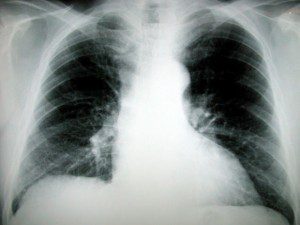By Jay Wang, MD –


A: For a long time, it was believed that only surgery was necessary to achieve a successful outcome for lung cancer patients diagnosed with stage IB to IIIA non-small cell lung cancer. However, a number of clinical studies provided evidence that patients who received both surgery as their primary treatment and chemotherapy as an “adjuvant,” or secondary treatment, reduced their risk of the cancer recurring. Unlike chemotherapy used as a primary therapy, adjuvant chemotherapy is usually shorter-term and has a fixed duration.
Q: My husband has stage 4 non-small cell lung cancer as well as tumors in his bone. Are there two different chemotherapy treatments for both the lung and the bone or are they treated with the same drugs?
A: Stage 4 non-small lung cancer is characterized by the spread of lung cancer cells through the bloodstream to organs outside the lungs such as the liver, brain, adrenal glands or bones. These cells attach to the new areas and begin to grow new tumors. So the chemotherapy your husband’s oncologist has chosen to treat the main tumor site in the lungs would also be considered the most appropriate treatment for the bone cancer tumors that have grown in his bone.
Q: My wife was recently diagnosed with lung cancer and started on chemotherapy. Since diagnosis and starting her treatment, her personality has changed, can chemo affect a person mentally?
A: Chemotherapy can affect a person’s mood, as can other medications such as steroids and pain medications. It is important that you and your wife inform her doctor of changes in her mood to rule out any medical causes. The change in her personality may also be a sign that she is still struggling emotionally with her diagnosis and treatment. Cancer can be overwhelming and bring up many feelings from anxiety to anger to sadness, proper counseling and sometimes anti-depressant and anti-anxiety medications are needed to maintain emotional well-being.
Jay Wang, M.D.
Board Certified Hematologist & Medical Oncologist
Premiere Oncology
955 10th Avenue North
Naples, FL 34102
(239) 325-1440
www.premiereonc.com
 Southwest Florida's Health and Wellness Magazine Health and Wellness Articles
Southwest Florida's Health and Wellness Magazine Health and Wellness Articles
